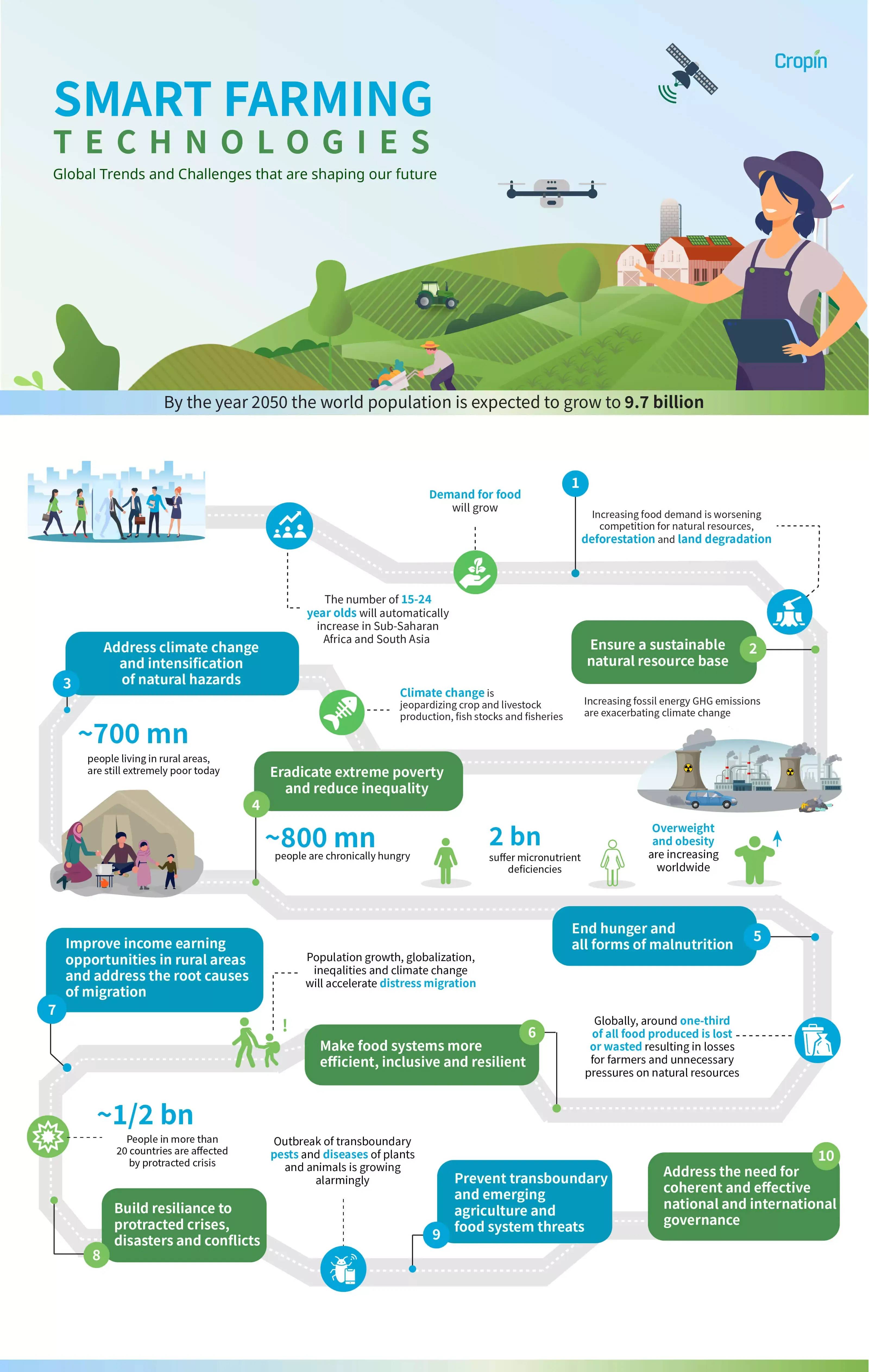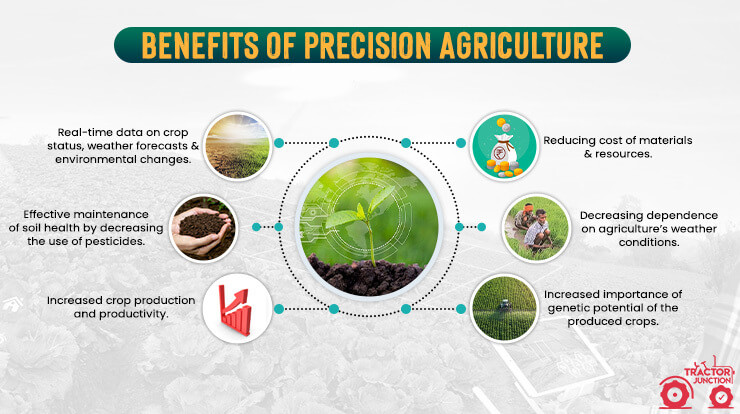Precision agriculture is revolutionizing agriculture by utilizing modern technology to improve crop cultivation. Farmers may improve efficiency, use resources better, and increase agricultural yields by using data-driven strategies and novel tools. This article dives into the notion of precision agriculture, emphasizing its benefits and the game-changing technology that is revolutionizing the agricultural sector.
Embracing Data-Driven Farming:
Farmers can make well-informed decisions based on real-time
insights using data analytics capabilities. Using sensors, drones, and
satellite imaging, they may collect critical data on soil conditions, moisture
levels, and crop health. This data analysis enables them to carry out focused
interventions such as precise irrigation, fertilization, and pest control, maximizing
resource allocation for maximum efficiency and productivity.
Smart Farming Technologies:
The Internet of Things (IoT) enables farmers to remotely
monitor and manage their agricultural activities by facilitating seamless
communication. Labor-intensive processes are streamlined with the use of
automated equipment such as robotic harvesters and autonomous drones, resulting
in increased productivity. Furthermore, artificial intelligence and machine
learning algorithms give predictive analytics, allowing farmers to foresee
problems and optimize farming practices for increased efficiency and yields.
Precision Resource Management:
Precision agriculture enables farmers to reduce waste by
applying inputs exactly where and when they are needed. Variable-rate
technology allows fertilizers, herbicides, and water to be delivered precisely,
maximizing effectiveness while minimizing environmental impact. GPS-guided
machinery allows for precise planting, sowing, and crop monitoring, promoting
consistent growth and, eventually, higher yields. This tailored strategy not
only improves efficiency but also promotes environmentally friendly agriculture
practices.
Benefits for Farmers and the Environment:
Precision agriculture improves operational efficiency by
lowering labor, input, and fuel expenses. It reduces the environmental impact
of farming practices by optimizing resource utilization and promoting
agricultural sustainability. Furthermore, increased crop yields from precision
techniques lead to increased profitability, assuring a sustainable and
prosperous future for farmers and the agricultural industry as a whole.
Overcoming Challenges and Future Prospects:
Precision farming demands farmer education, data privacy,
and cybersecurity safeguards. Continuous improvements such as edge computing
and remote sensing increase efficiency and productivity. Farmers with
information and secure data can cultivate confidence, ensuring sustainability
and lowering expenses. Agriculture's future lies in leveraging technology to
improve practices and achieve better environmental and economic outcomes.
Precision agriculture transforms farming by providing
accurate, efficient, and long-term cultivation. Farmers may optimize yields and
reduce resource waste using data-driven strategies and innovative technologies.
The future of agriculture promises abundant harvests and a sustainable future
as we adopt precision farming.
"Nurturing nature's potential with precision
agriculture, we cultivate efficiency and unlock the bountiful harvest,
harmonizing productivity and sustainability."


